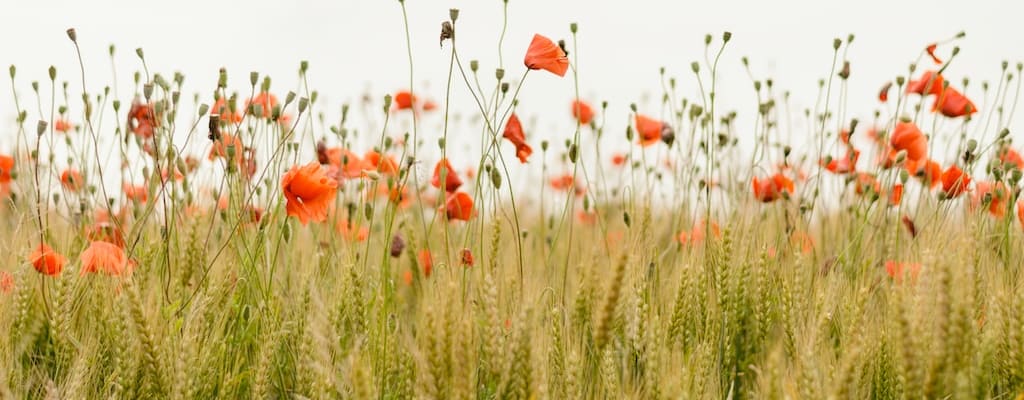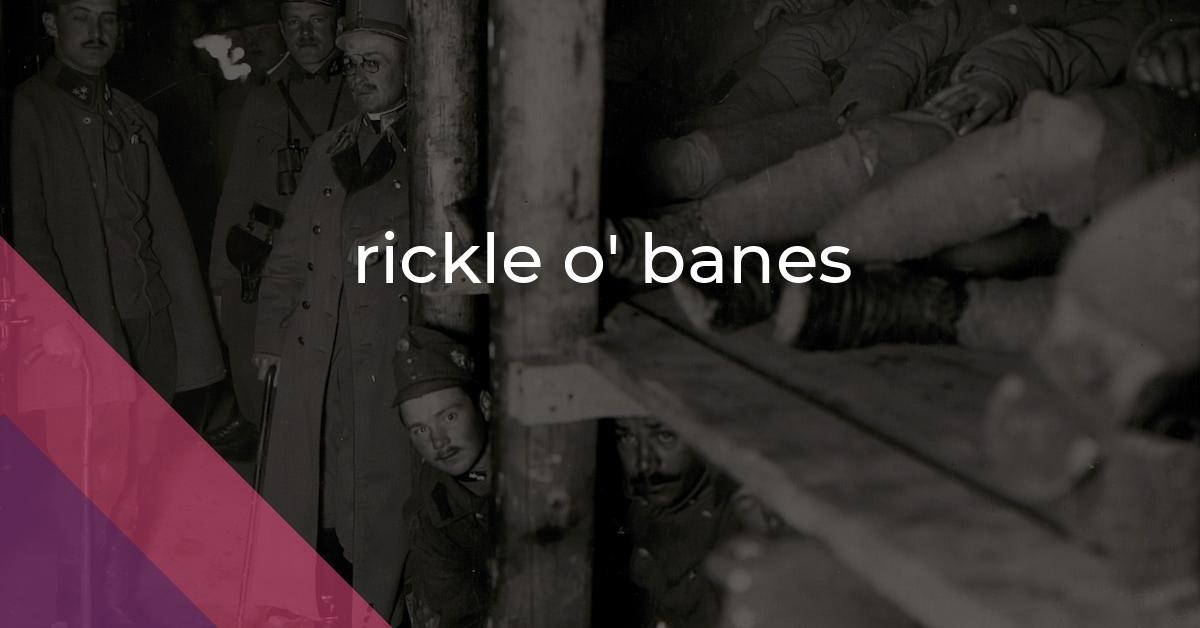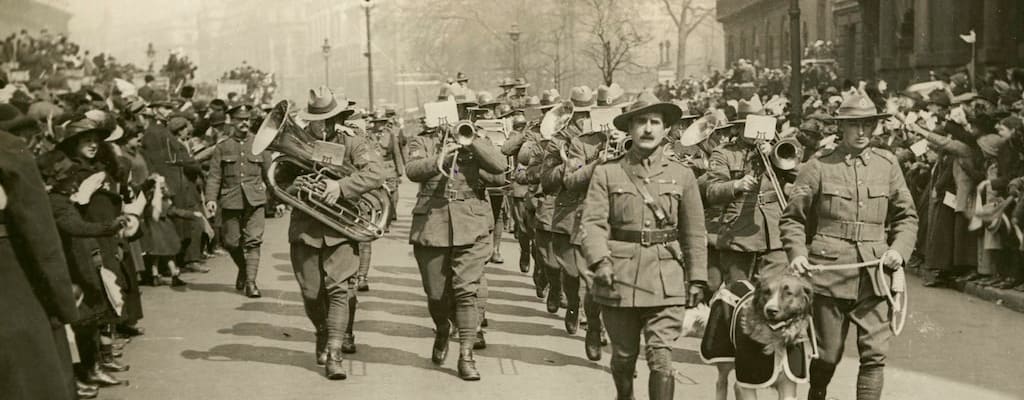rickle o’ banes: Idiom Meaning and Origin
What does ‘rickle o' banes’ mean?
"Rickle o' banes" is an idiom that means a collection of bones.

Idiom Explorer
The idiom "runt of the litter" refers to the smallest or weakest member of a group or family. It is often used to describe someone or something that is perceived as less successful or capable compared to others.
The idiom "rub in" means to emphasize or remind someone of something, often in a way that causes annoyance or embarrassment.
The idiom "rubber chicken" refers to a comedic prop used in performances, often associated with jokes that are old or clichéd. It symbolizes something that is overused or lacking originality and effectiveness.
An idiom often used to describe a person who is disliked or considered bad, with negative qualities or behavior.
The idiom "rod in pickle" means being in a difficult or troublesome situation, often due to one's own actions or choices.
The idiom "razz someone's berries" means to mock or tease someone in a playful or lighthearted manner.
The idiom "rarer than hens' teeth" means something is extremely uncommon or scarce. This comparison refers to the fact that chickens do not have teeth, making them virtually non-existent.
An idiom used to describe someone or something that is highly unusual or unique; as rare as a rare animal.
The idiom "rake together" means to gather or collect something, usually in a hurried or hurried manner. It is often used to describe the act of gathering money or resources, typically in a last-minute or desperate situation.
The idiom "rack and ruin" means to be in a state of complete destruction or collapse.
Ancient Origins Uncovered
Rickle o' banes is an idiom that refers to a condition of extreme discomfort or pain in the bones. It has been used in Scottish folklore and literature for centuries. The phrase can be found in various Scottish texts dating back to the 17th century. In this context, "rickle" is believed to come from the Scottish term "wrackle," which means to twist or wrench, and "banes" refers to the bones of the body.
Scottish culture closely associates the concept of "ricket" with this idiom. Ricket is used to describe the act of twisting or contorting the body in pain due to a bone-related condition. This connection enhances the understanding of rickle o' banes, as it suggests a profound level of physical discomfort.
The idiom is primarily used to describe a severe or intense sensation of pain or discomfort in the bones. It conveys a vivid image of bodily suffering, evoking the idea of contorted bones and acute agony. The phrase is often used metaphorically to convey extreme physical discomfort in literary works, poetry, and everyday conversations.
Given its Scottish origins, rickle o' banes is not widely known outside of Scotland or those familiar with Scottish literature or folklore. It remains a niche expression that conveys a specific sense of suffering. However, in an increasingly interconnected world where language barriers are breaking down, it is possible that this idiom could enter the lexicon of other English-speaking populations.
While the idiom is relatively rare in contemporary usage, it holds an intriguing place in the realm of idiomatic expressions. Its specific reference to bone-related pain sets it apart from other idioms that may allude to general discomfort or agony. Rickle o' banes has a distinctiveness that captures the imagination and curiosity of those who encounter it, inviting exploration and contemplation.
The related idiom "bag of bones" shares similarities with rickle o' banes. Both refer to the bones of the body and convey a sense of physical discomfort. However, "bag of bones" is often used to describe someone who is excessively skinny or lacking flesh on their body. This idiom suggests a person who appears frail or emaciated, emphasizing their thinness rather than explicitly focusing on bone-related pain.
The idiom "meat on one's bones" also relates to rickle o' banes. While rickle o' banes conveys extreme discomfort in the bones, "meat on one's bones" is a phrase used to describe someone who appears healthy or robust. It implies that the person has a sufficient amount of flesh or muscle on their body, giving them a solid and sturdy appearance. In contrast, rickle o' banes emphasizes the discomfort or pain associated with bones, highlighting a potentially fragile or weakened state.
The idiomatic phrase "rake together" is another idiom related to rickle o' banes. While rickle o' banes focuses on extreme discomfort in the bones, "rake together" conveys the act of gathering or collecting many things. It suggests bringing together various elements or resources to create a larger whole. In the context of rickle o' banes, "rake together" could be used metaphorically to describe the gathering or accumulation of pains or discomforts related to bones, further intensifying the sense of suffering.
Rickle o' banes is an idiom originating from Scottish Gaelic that refers to extreme discomfort or pain in the bones. It has a long history in Scottish folklore and literature, and is associated with the concept of twisting or contorting the body in pain. While not widely used outside of Scotland, rickle o' banes carries a distinctiveness that captures the imagination, inviting exploration and contemplation. Its related idioms, "bag of bones," "meat on one's bones," and "rake together," each convey different aspects of bone-related discomfort, contributing to the richness and depth of idiomatic expressions.
Example usage
Examples of how the idiom "rickle o' banes" can be used in a sentence:
- She was so scared that her knees were shaking like a "rickle o' banes."
- The old abandoned house was filled with a "rickle o' banes," making it a spooky place.
- After the earthquake, the building was left as a "rickle o' banes," completely destroyed.
More "Health" idioms



